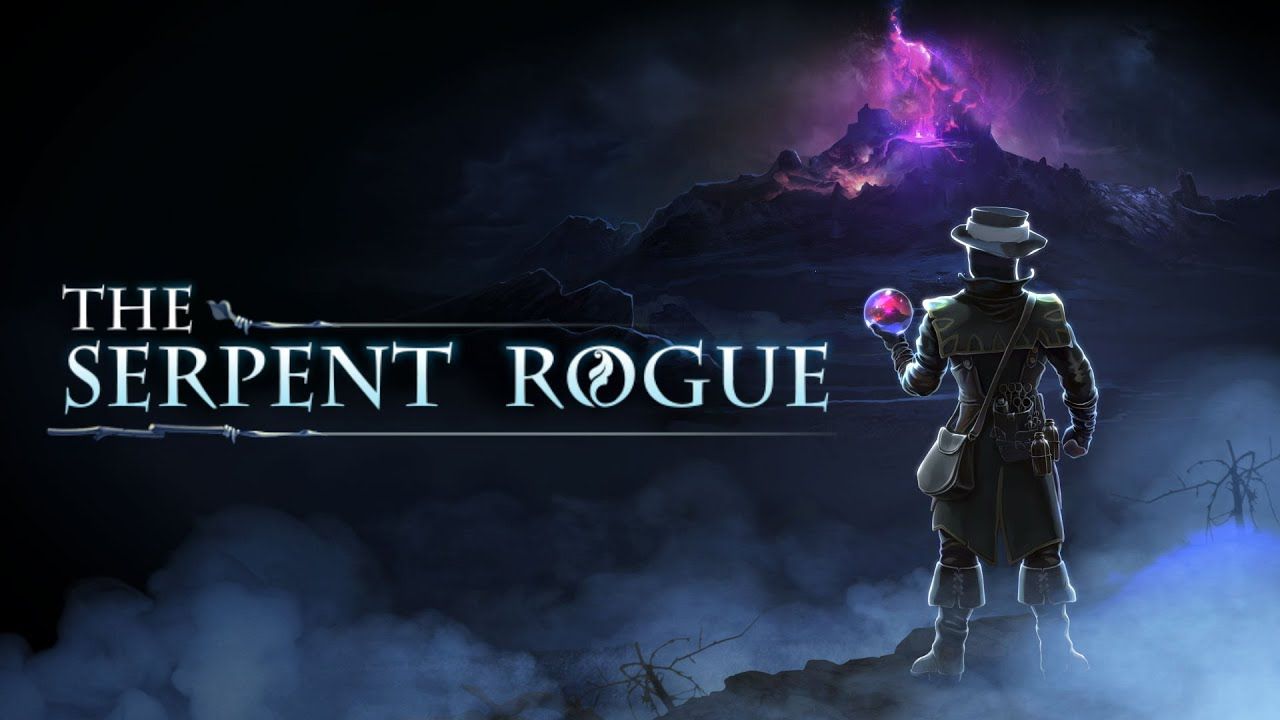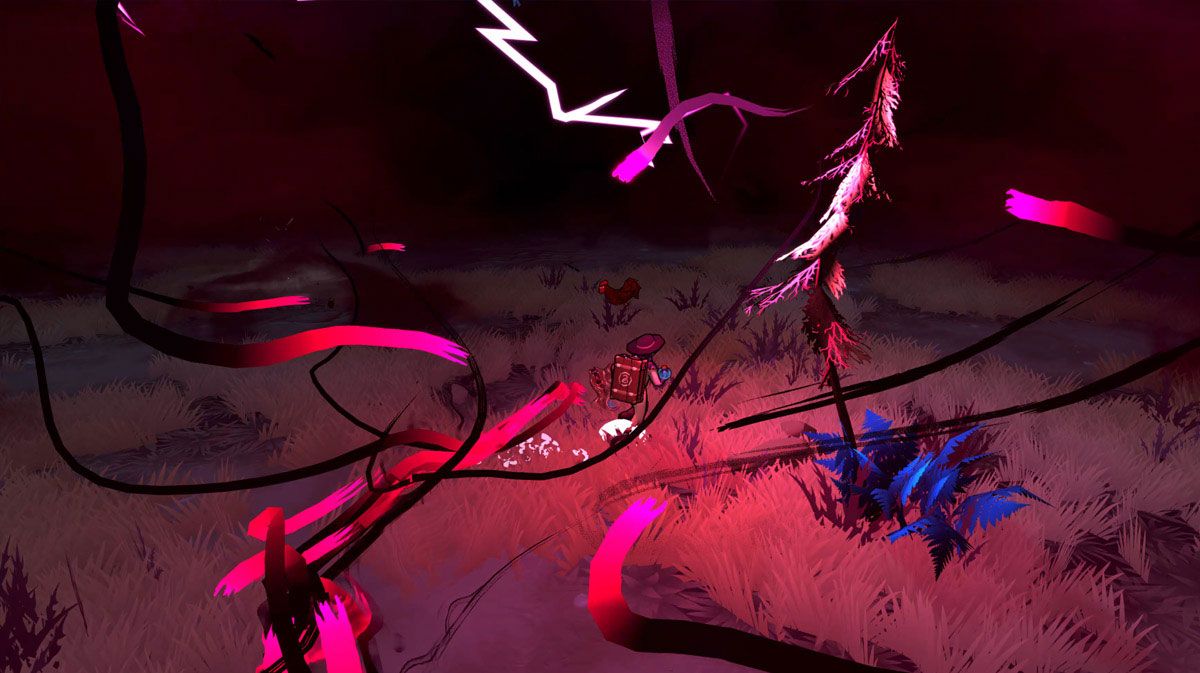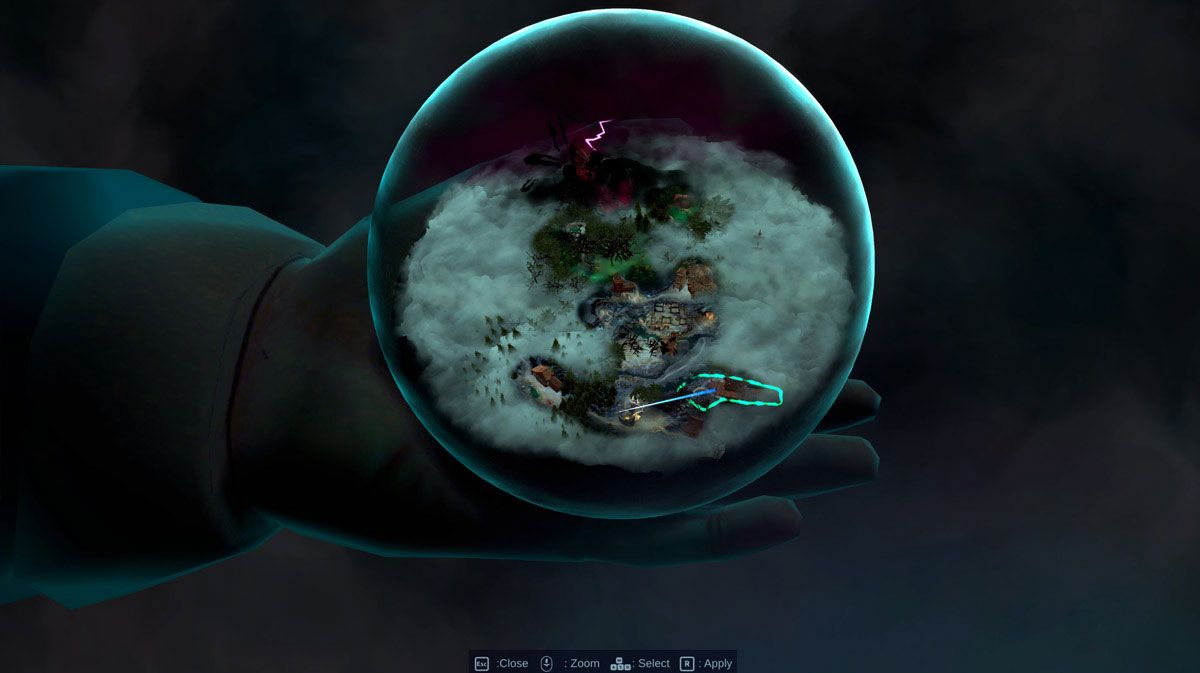Alchemy of an Indie - The Serpent Rogue and Sengi Games
Digging into the alchemy-based rogue-like action adventure, and the studio that made it

The Serpent Rogue takes an open-world sandbox blueprint, throws in liberal amounts of crafting, alchemy, discovery, and just a touch of rogue-like elements, then shakes it all up to deliver something that feels truly unique. Exploring the ever-changing landscape is the name of the game, but there's always something new and different to find around every corner. It can be hard to come to grips with everything for the first few hours, but the "aha!" moments are rewarding and worth a bit of occasional frustration.
Editor's note - This game was reviewed with a free code provided by the publisher. In no way does that affect the opinions given here.
In the first title from Ukrainian studio Sengi Games, players take on the role of a "Warden", looking very much like the historical vision of a plague doctor. These Wardens are tasked with curing the world of a mysterious Corruption wrought by the titular villain. Players will do this by creating potions, crafting items, discovering various natural materials, taming animals and discovering how to transform yourself into them, and hiring human helpers to act as allies. Before you can cure the world, however, you must learn its secrets by exploring the various areas of the game world and discovering all the items that lay within them.

One of the core tenets of SUPERJUMP is highlighting the various journeys developers take on their way to creating the games we all play and love. In the process of playing and reviewing the game, I interviewed studio head and co-founder Alexander Ponomariov about the game and his path to where the studio is today. I started by asking Alexander about his path into gaming and how the studio was founded:
I had a great job in the industry with great people before founding Sengi Games, but sometimes the road just calls and you can't resist. So it happened to me in 2018. I completed all my tasks as a part of Pinokl Games, shook hands with all my team, and departed towards the unknown. Looking back from the point where we are I see that path was harder than I anticipated, but every step was worth it as it lead us to where we are now: making games with our own vision and taking risks that lead to failures and success. This is an amazing experience!
Though The Serpent Rogue is the first game for the studio, the team behind the game wasn't new to creating games. I asked Alexander about his development background and the experiences he had created on his Itch.io page:
We often had been participating in game jams events, where developers have a theme and around 72 hours to create a game with it. That Itch.io page has a record of some of the entries I've been personally involved, also the rest of Sengi Games team has their own pages...and we had a bunch of games where we collaborated...in a few words, we love this little sketching.
It's a very challenging but rewarding activity. It shapes you as a developer by showing your strong and weak sides. If you find yourself as a starting developer, I highly recommend participating in Ludum Dare. For example, it has a super friendly community and you will be surprised how many famous developers you can meet there.
The game has a unique look, mixing almost painterly backgrounds with players and enemies that are reminiscent of the cell-shaded graphical technique. Lightning streaks across the sky, fog obscures the land everywhere you look, pestilential swamps offer dangers and treasures, and the Corruption storms are both beautiful and absolutely deadly should your Warden find themselves in one. They also serve to shuffle the landscape, so returning to an area after it clears will reveal different enemies and different item locations.
I asked Alexander what inspired the look and feel of the game's world and inhabitants:
We built this world without a single particular source of inspiration. Of course, as our imagination is partly formed from things we experienced previously, I would say the Divine Comedy is something that definitely had an impact on our lore and worldbuilding. Overall, we had an intention to make the story happen in a place somewhere on the edge of fantasy and reality.

Players starting a new game will spend much of the early going in the game’s first few areas, especially the Abandoned House and Camp that make up this sandbox’s “hub world”. This is where the player can always come to farm some of the most basic resources needed for crafting and potion making, house and care for the animals they tame, cook food, craft new metal objects in a smelter, research mysterious new substances you find in your travels, and fulfill requests for various potions in return for gold. Yes, these things and more make up the core gameplay in The Serpent Rogue, and you will spend quite some time getting used to the mechanics before you see your first enemy.
Once you have a handle on how to craft, brew, and navigate the world, you can head to the Wasteland, the first biome outside of the safe embrace of the hub area. It is here that the game’s combat comes to life, where the variety of weapons — which includes axes, shovels, swords, and more — come in handy against the humans and animals turned angry and combative by the Corruption you seek to eliminate. It is worth noting that the game’s press materials say a pacifist route is possible if players want to avoid killing anything in this once-innocent land.
There are various other areas and biomes to discover that branch off from those three areas, each one containing more secrets that open more possibilities in the game. It feels like I’ve only just scratched the surface of the game after over 15 hours, so some players will put in 50+ hours discovering all the land’s secrets.
There is a fair amount of trial and error inherent in the discovery and exploration at the core of the game. Potion materials may end up wasted, resources misused, and lives lost because the game holds its cards very close to the vest, forcing players to learn almost everything for themselves. I asked Alexander how the Sengi team found the right balance of telling too much and yet avoiding player frustration in the early going:
We tell only crucial things, so the player could understand the direction, also leaving hints all over the place regarding how to progress and learn more about the background of the characters and environment. The feeling of discovery and surprise is really priceless and something that we avoid taking away from players.
We teach the player how to swim, but at some point let him go, giving him the freedom to continue swimming in the safe area or dive in deeper and discover his own way of progressing. We build our mechanics so that players could find their own right way to complete the game. There is even a possibility of completing the whole game without hurting any creature.

Speaking of those mechanics, I was intrigued by the inspiration for the relatively uncommon mix of activities that make up the game's foundation:
In our youth there was a great series of games called Gothic made by Piranha Bytes. I truly love Gothic 1 and Gothic 2. You could also transform into another creature in there and gain new powers, or brew some potions with found ingredients. It was such an amazing experience, all put in a unique environment. I believe games like this brought me to game dev and also influenced the variety of mechanics in The Serpent Rogue.
This review is intentionally spoiler-free because robbing players of the many moments of discovery would be truly cruel. Sussing out the formulas for the various potions, for instance, is great fun, but make sure you have a good supply of patience in your inventory, too. Stick with it long enough and the light bulb will go on, whether it's opening up a new biome or learning how to make stronger and deadlier weapons.
Interestingly, the rogue-like elements of the game don’t always come from death. There will surely be times when you’ll walk into a fight you can’t handle, and for those, you have one chance to go reclaim your lost inventory in the authentic style of the genre. But you may start a new run simply because you realized you spent your coins unwisely, and beginning again with that nugget of wisdom is the wiser path. The game has no manual save option but saves over your progress almost continuously, leaving no path to unroll your mistake. How you feel about that design decision may influence your take on the game, but it effectively prevents what many fans of the genre refer to as “save-scumming”.
With this being the first game from the studio, I was curious how the team had arrived at the decision to make a game with such a unique combination of features, rogue-like action adventure with a focus on alchemy:
We didn't really follow any analytics on what is popular or more rewarded in the game industry at that time, and just started creating the game that we would like to play in our free time. This was the whole reason for creating this studio in the first place. In terms of finance, this was a risky decision, but we live only once (at least there is an opinion like that) and why not try to spend the time you have on making things you want?
It's hard to argue with a premise like that, and I was struck by how well it lines up with the SUPERJUMP mission. We don't follow click-bait patterns and the all-consuming news cycle, we simply play the games we love and celebrate their creation and enjoyment with other fans. The folks at Sengi are making the game they want and enjoying the ride, who could ask for more than that?

Finally, I would have been remiss if I hadn’t inquired about how the studio is dealing with the war raging in their country. After three years of development on the game, the Russians invaded on February 24th, just two months and two days before the scheduled release. On March 18th, Sengi tweeted that the game would still make its original release date of April 26. I asked how they came to the decision, and what it’s been like trying to finish development in the middle of the war:
We didn't come to this decision right from the beginning, that's for sure. The first few weeks of the war, we completely stopped developing and cared only about how to shelter our families and make sure they were safe; it was an endless parade of crazy news non-stop all around and at some point, we decided that we required our daily routine back to have a distraction. I remember the day I proposed to our team to continue work on the game when it was possible; it was met with relief and encouragement. Everyone was in for it. So I contacted our publisher, Team17, and we had a discussion about keeping our word and still delivering at a promised date.
We knew it was gonna be challenging as we don't have regular, stable working hours, but we learned how to overcome the difficulties of remote work in extreme situations back when the Covid struck. Though the work is much more chaotic than it was before, some developers can't sleep at night and some spend half of their time volunteering, we still managed to produce and deliver all that is required from us in order to make a complete game in time. I'm really proud of everyone involved in creating this game.
The Serpent Rogue launches on April 26th for Windows, Nintendo Switch, and current-generation consoles. Published by Team 17, the developer plans to support the game after launch by continuing to engage with their fans, adding mechanics, and possibly even a survival mode. We here at SUPERJUMP would like to wish Alexander and everyone at Sengi Games safety, health, and good fortune as they navigate these trying times.
